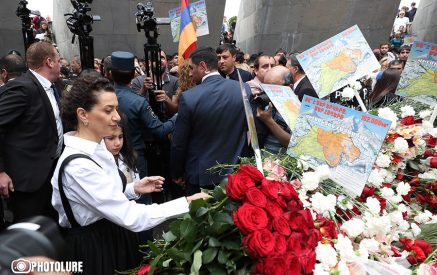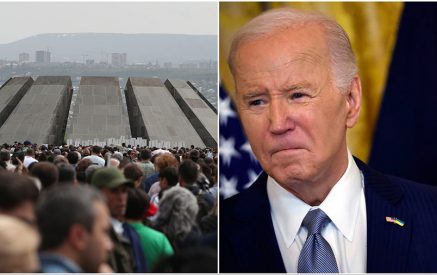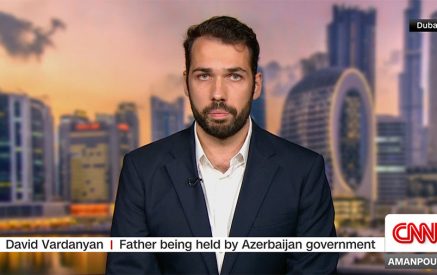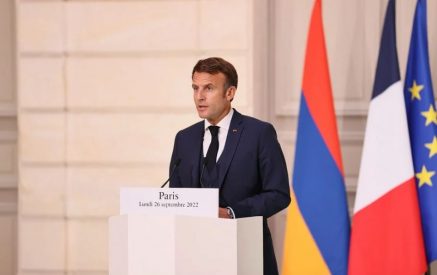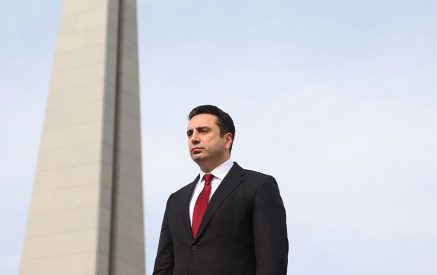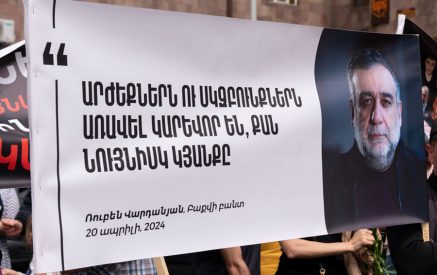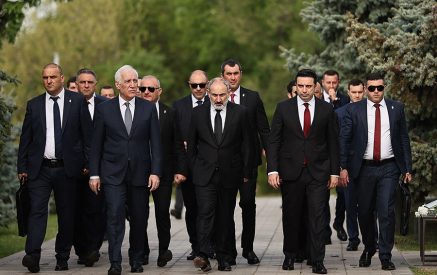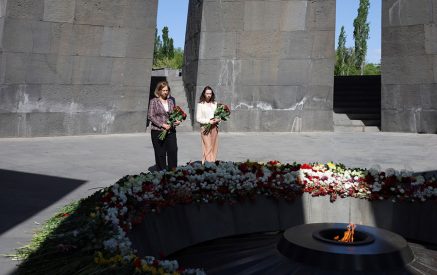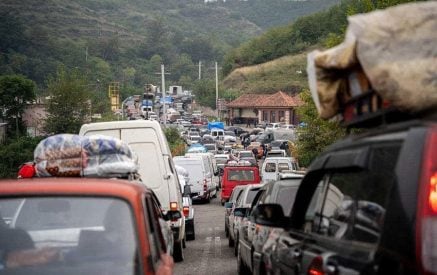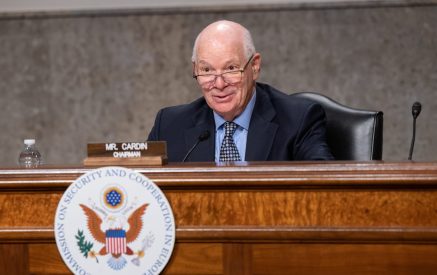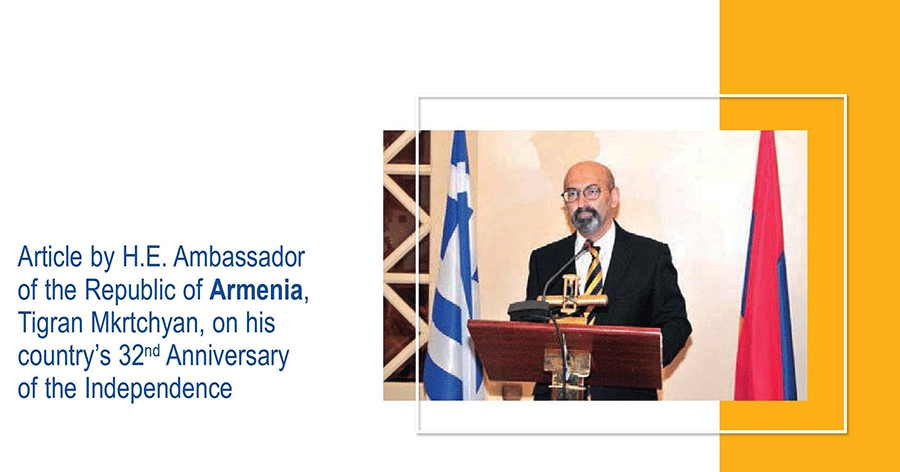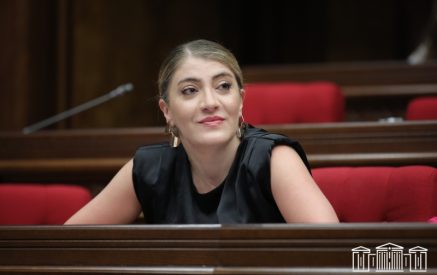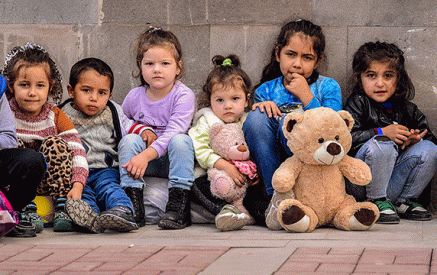Ambassador Tigran Mkrtchyan’s interview to Greek Diplomatic Life Magazine
MARKING OF 30TH ANNIVERSARY OF THE MUTUAL OPENING OF EMBASSIES AND THE 32ND ANNIVERSARY OF INDEPENDENCE, THE MAIN MESSAGES:
Greece was one of the first countries to recognize the independence of Armenia, which was followed by the establishment of diplomatic relations. This year we are marking the 30th Anniversary of the opening of diplomatic representations, both in Yerevan and Athens. It is unnecessary to mention that the relations between Greek and Armenian peoples have a history not of decades, but of millennia, during which the strong friendly ties, common values, and approaches formed a solid foundation for the development of interstate relations.
In the early 19th Century, the Greek revolutionaries who were fighting for their independence from the Ottoman yoke also mentioned the Armenians as their fellow brothers in pursuing the same goal. The Genocide of Armenians, Greeks, and Assyrians of 1915-1916 and the Smyrna Catastrophe was another stage in our shared pain and standing by one another. The Armenian community here was officially established immediately after Smyrna in 1922 as several thousands of Armenians found safe haven in Greece, although some of our Armenian communities in Northern Greece and the island of Crete have a continuous presence in the region that impressively exceeds five centuries.
Read also
The young state of Armenia has always felt the support of Greece, both in terms of effective bilateral cooperation and in terms of the support shown to Armenia at international platforms. Today, Greece is one of Armenia’s most important partners in Europe and the world. Taking this opportunity, I would like to emphasize that we, Armenians, will never forget the sincere support of the Greek people and the Government of Greece during the most difficult periods of our nation’s history, the most recent example of which was the war of 2020 and the following developments in Nagorno-Karabakh.
POTENTIAL FOR DEEPENING BILATERAL RELATIONS, FIELDS OF COOPERATION:
There is an active political dialogue. A few days ago in Granada, within the framework of the summit of the European Communities, the Prime Ministers of Armenia and Greece, Nikol Pashinyan and Kyriakos Mitsotakis, had a meeting (the third meeting over the last four years), during which the latter expressed his support to and solidarity with Armenia in face of the ethnic cleansing in Nagorno- Karabakh and threats to Armenian territorial integrity by Azerbaijan and Turkey.
The meeting of our foreign ministers also took place within the framework of the 78th session of the General Assembly. In addition, Ministers Mirzoyan and Gerapetritis had two telephone conversations in recent months. In general, on the Foreign Ministerial level, there has been active cooperation and several mutual visits.
Taking into account the intensity of political dialogue and the content of multisectoral cooperation, I think it is time to consider the possibility of bringing the Armenia-Greece cooperation to a much higher, strategic level, which, I believe, will happen sooner than later.
PROSPECTS FOR TRILATERAL COOPERATION:
Of course, the tripartite format of cooperation, which is based on the commitment of the parties to common values, readiness to develop neighborly relations based on the principles of International Law, has a much greater potential for development. In the near future, we look forward to hosting a tripartite summit at the level of heads of state in Yerevan, which, I am sure, will set new targets for cooperation.
POTENTIAL FOR ECONOMIC RELATIONS:
Currently, efforts are being made to host the regular 6th session of the Intergovernmental Joint Commission on Armenian-Greek economic, industrial and scientific-technical cooperation in Yerevan in the first quarter of 2024.
If we talk about specific directions, then renewable energy is one of the promising areas of economic cooperation. Greece has made great progress, especially in the field of solar energy, this experience is very valuable for Armenia, where renewable energy is a rapidly developing field and there is a large space for investment.
Armenia also offers huge potential in several other sectors such as agriculture, pharmaceuticals, textile and apparels, food and beverage and of course tourism, a field of economy in which Greece has a unique know-how. Within this context, Armenia was the ‘Honoured Country’ at last year’s Philoxenia exhibition in Thessaloniki which is considered the most important tourism event in Greece.
Another booming field is information and communication technologies which has become one of the fastest-growing industries in Armenia, with a steady annual 20% growth rate. Armenia is intending to participate for the first time in the upcoming ‘Beyond Expo’, the well-known technology exhibition and summit which will be held in Thessaloniki on April 25th.
SITUATION IN NAGORNO KARABAKH, ETHNIC CLEANSING:
As you know, back in September 2020, Azerbaijan violated one of the fundamental principles of International Law – the principle of non-use of force and unleashed a large-scale war against Nagorno-Karabakh. It was possible to stop the bloodshed with the tripartite declaration of November 2020, the purpose of which was to move the settlement process to a peaceful course.
However, Azerbaijan, not receiving proper pressure and adequate international reaction for its aggressive actions and war crimes, encouraged by impunity, first started blocking the Lachin Corridor – the only “way of life” connecting Nagorno Karabakh with Armenia in December of last year, effectively keeping the local Armenian population besieged for 11 months, and later, on September 19th-20th, initiated another military aggression against the exhausted, isolated Armenians of Nagorno Karabakh.
The cities and villages were criminally subjected to merciless aerial bombardment, causing more than 300 dead, more than 400 wounded and more than 1,000 missing, including a large number of civilians, including children, women and the elderly. And all this is accompanied by the cynical Azeri rhetoric of “reintegrating” the Armenians of Nagorno Karabakh.
The hypocrite rhetoric has reached a level, when Azerbaijani officials spare no effort to repeat that the Armenians left on their own will and no one forced them out as if preparing grounds to exclude their return. If the nine months of blockade of starvation, creation of impossible-for-life conditions, barbaric killings and mutilations of Armenian soldiers, dead bodies, women, even children and elderly during every attack and never being punished for such crimes, Hitler-style fist waiving of their leader and referring to Armenians as “dogs” and a “tumor of Europe” and renaming the street in Stepanakert (capital of Nagorno-Karabakh) after the name of Enver Pasha, one of the three masterminds of the Armenian Genocide, are not sufficient reasons for Armenians to flee, then what is?
The Armenians of Artsakh, who fought for their own self-determination in accordance with the elements of International Law for 35 years, today left their homes, the cradle which has always been inhabited by Armenians for at least the last three millennia and has been Armenian. An unspeakable tragedy of a global level has happened. This must be acknowledged.
The citizen of Artsakh laid down his weapons and left the house with his family because even after enduring nine months of hunger and other deprivations in front of the “progressive” blind public, he or she did not receive the support that should have been received by humane written and unwritten laws, because today the world needed Azerbaijan as a “reliable partner in energy” more than just Armenia fighting for its rights. If human rights, if morality and conscience still have any traces in the Western value system, this policy should have been reviewed before long.
Today, more than 100,000 Artsakh citizens are in Armenia and our government, with the support of international partners and friendly countries, is doing everything to meet their needs. The right of return of the Nagorno-Karabakh Armenians cannot be questioned and it should be achieved under safe international guarantees and with the presence of internationally mandated peacekeeping forces. Also, the former leaders of Nagorno-Karabakh and all PoWs must be returned as soon as possible.
By humiliating Armenians and Armenia, Azerbaijan is not achieving a solution to the Nagorno-Karabakh conflict, it is merely passing the issue onto the burden of future generations. Conflict solution means concessions. We do not notice any concessions from Azerbaijan, we notice only an extremely dangerous genocidal appetite which is growing day by day.
FUTURE OF THE ISSUES, REFUGEES:
There is no alternative to the peaceful settlement of regional problems within the framework of the principles of International Law, including the international commitments undertaken by Baku. Armenia will be consistent in restoring the rights of forcibly displaced Armenians from Nagorno Karabakh, applying all available international legal instruments. As is known, the Armenian culture of Nagorno-Karabakh is quite unique, including the local dialect. Today, Armenia is facing many social problems, like providing housing and employment for 100,000 refugees, despite this, efforts are being made to ensure the compact residence of Karabakh Armenians, to preserve the formed educational culture, public institutions, the goal of which is to preserve the original Karabakh culture and traditions. The preservation of the Armenian cultural heritage in Nagorno Karabakh is also a very vital issue. It is important for the international structures to take these monuments under international monitoring. Many monuments of the early Christian culture are located there, such as the most impressive Amaras, Dadivank, and Gandzasar monasteries. In a number of places, there were cases of destruction of churches or attempts to rebuild them, in which the Armenian traces were cleaned. If urgent and necessary measures are not taken, we will have a situation as is in Nakhijevan, an Armenian region, where within less than a century not a trace of Armenian existence has been left. Barbarism, wherever it occurs, is condemnable and should be prevented before the day.
WHAT CAN GREECE AND THE INTERNATIONAL COMMUNITY DO? WHAT HAVE THEY DONE SO FAR?
I want to emphasize that the danger of aggression is not neutralized at all. Today, the Azerbaijani army is occupying a part of the sovereign territories of Armenia, continuing its policy of threats of force and blackmail. Azerbaijan is making new demands to Armenia, and in the absence of a clear international response, the danger of new aggression is quite high. The international community has an important mission in bringing Azerbaijan to a constructive field; all the culprits of the disaster must be clearly held accountable.It will be possible to prevent new bloodshed in the region, to force Azerbaijan to give up the threat of force, to return to dialogue only if international actors have a united will and appropriate pressure. Failure to comply with International Law must lead to serious consequences.









































